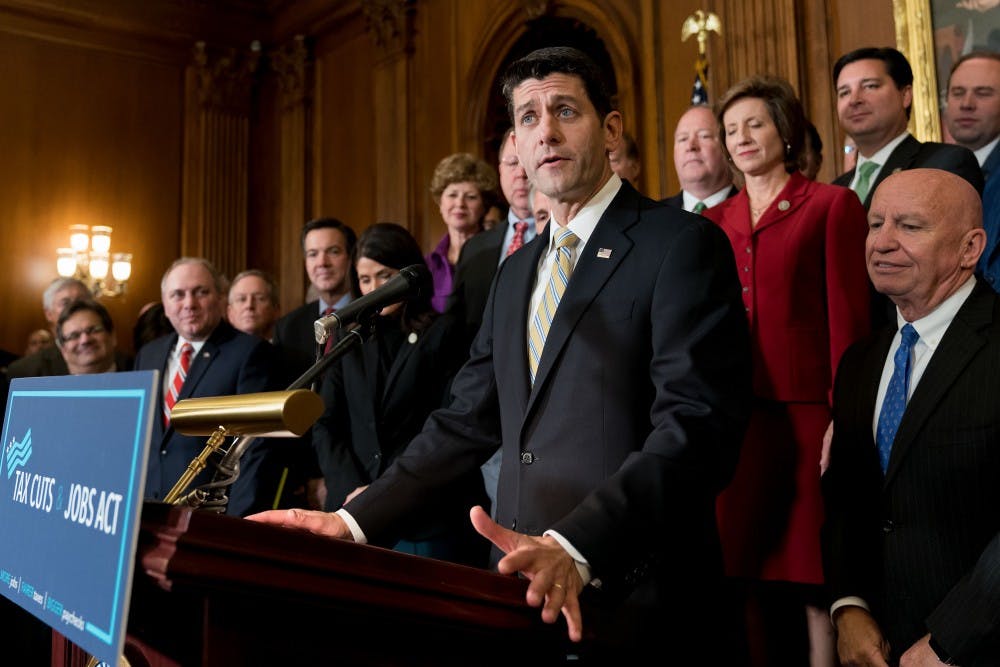Congress Republicans dropped part of the original tax bill Friday that would tax graduate student tuition waivers as income, relieving graduates across the country and more than 3,900 at ASU.
The rhetoric for the graduate student tuition waiver tax was in both the House and Senate bills, but lawmakers cut the provision while in reconciliation.
This occurs when the House and Senate pass different bills on the same issue — these differences are negotiated in a committee, approved and sent to the president as one bill.
Samantha Hernandez, president of the Graduate and Professional Student Association, went to Washington D.C. twice to ask congressmen to remove this tax from the bill.
She made emotional appeals to congressmen asking them if they went to graduate school or if they knew anyone close to them who did.
"It's great to see that our national effort... it went through," Hernandez said. "That was a lot of work to plan and from my position on the national level, it was great to see that happen."
Hernandez said she and other graduate students used numerous tactics to persuade legislators to change their opinion, including calling specific legislators, spearheading a social media ad campaign and sending guidelines on how to take action to universities across the country.
Hernandez said these efforts are part of the reason the final GOP bill does not contain the graduate student waiver tax.
There were 1.8 million graduate students in fall 2016, and that number has only risen since with more students entering graduate programs than ever before, according to a report by the Council of Graduate Schools.
Alyssa Sherry, a fourth year doctoral student studying chemistry, is researching the effects of wildfires on microbes in the Pacific ocean.
"I'm thrilled, actually," Sherry said of the bill's change. "All of the graduate students that I know are very relieved because there are a lot of us who wouldn't be able to afford graduate school if this had gone through, and now we're breathing a sigh of relief."
The graduate student waiver tax would have prevented some students to continue their education. It would be especially harmful to those in STEM fields, for they contribute to 60% of the overall waivers and course reductions given out.
"I'd like to give them a big thank you," Sherry said. "And potentially a high-five, a hug or a handshake."
Reach the reporter at cbudnies@asu.edu or follow @ChaseHBudnies on Twitter.
Like The State Press on Facebook and follow @statepress on Twitter.




